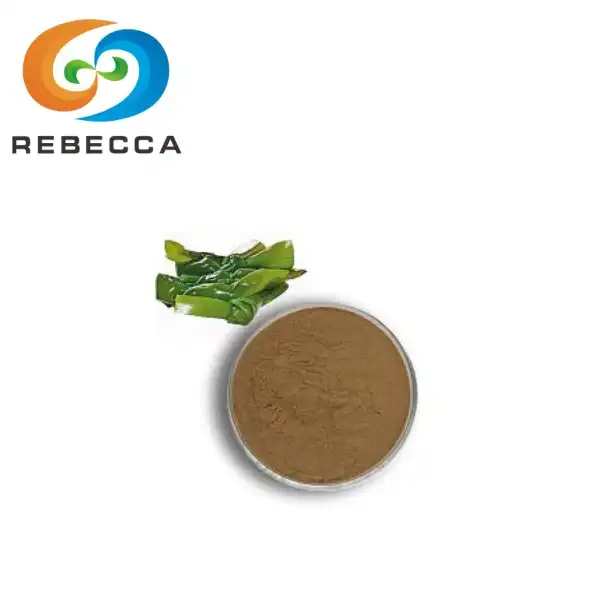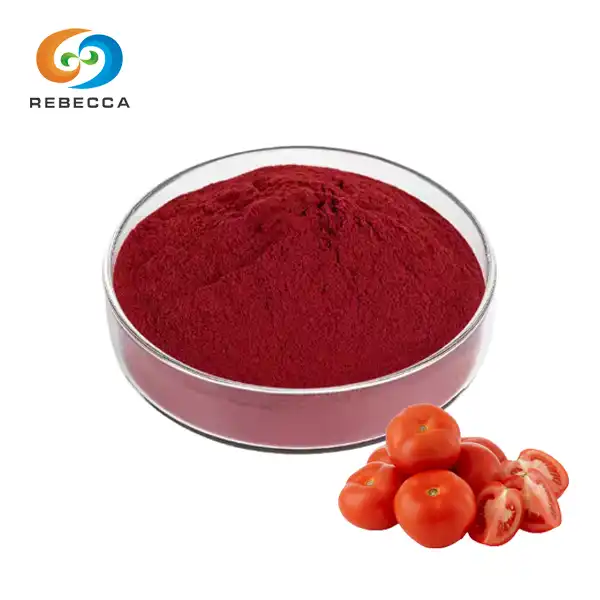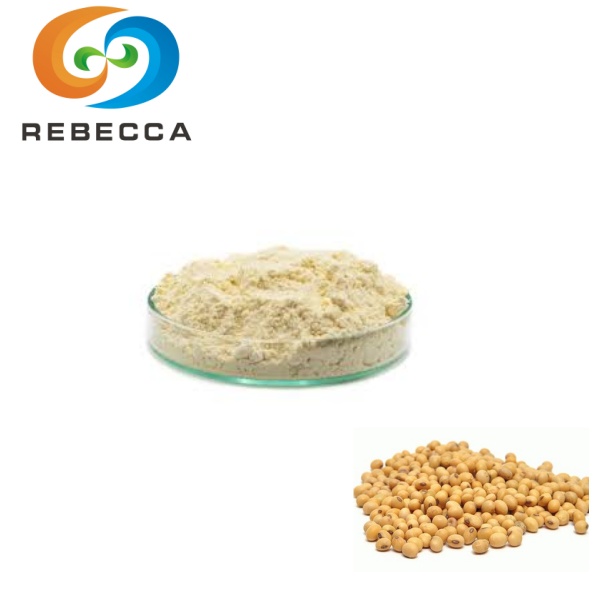Does fucoxanthin help with weight loss?
In the quest for effective weight loss solutions, many people are turning to natural compounds like fucoxanthin. This unique carotenoid, found primarily in brown seaweed, has gained attention for its potential fat-burning properties. But does fucoxanthin powder really help with weight loss? Let's dive into the science behind this intriguing substance and explore its potential benefits for those looking to shed extra pounds.
Top Benefits of Fucoxanthin Powder for Fat Burn
Fucoxanthin, a xanthophyll carotenoid derived from brown algae such as Laminaria japonica, has shown promising results in various studies related to weight management and fat reduction. Here are some of the top benefits associated with fucoxanthin powder for fat burn:
Boosting Metabolism
One of the primary ways fucoxanthin may aid in weight loss is by increasing metabolic rate. Research suggests that this compound can enhance the expression of uncoupling protein 1 (UCP1) in white adipose tissue. UCP1 is typically found in brown fat, which is responsible for thermogenesis - the process of burning calories to produce heat. By inducing UCP1 expression in white fat, fucoxanthin may help convert stubborn white fat into more metabolically active brown fat, potentially leading to increased calorie burn.
Targeting Abdominal Fat
Fucoxanthin appears to have a particular affinity for abdominal fat, which is often the most challenging to lose. Studies in animal models have shown that fucoxanthin supplementation can lead to a reduction in visceral fat accumulation. This is especially significant because excess visceral fat is associated with various health risks, including cardiovascular disease and type 2 diabetes.
Regulating Fat Metabolism
Another mechanism by which fucoxanthin may contribute to weight loss is through its effects on fat metabolism. Research indicates that this compound can help regulate lipid metabolism by influencing the expression of key enzymes involved in fat breakdown and storage. By promoting the breakdown of fatty acids and inhibiting their storage, fucoxanthin powder may help prevent excessive fat accumulation in the body.
Improving Insulin Sensitivity
Fucoxanthin has also been observed to enhance insulin sensitivity in animal studies. Improved insulin sensitivity is crucial for weight management, as it allows the body to more effectively utilize glucose for energy rather than storing it as fat. This effect may be particularly beneficial for individuals struggling with insulin resistance or prediabetes.

How to Use Fucoxanthin Powder for Best Results?
To maximize the potential benefits of fucoxanthin powder for weight loss, it's essential to use it correctly and in conjunction with a healthy lifestyle. Here are some tips on how to incorporate fucoxanthin powder into your weight loss regimen:
Optimal Dosage
While there is no officially established dosage for fucoxanthin, most studies have used doses ranging from 2 to 16 mg per day. It's important to note that the bioavailability of fucoxanthin can vary depending on the source and formulation.
Timing of Consumption
Some research suggests that taking fucoxanthin with a meal containing fat may enhance its absorption. Consider incorporating your fucoxanthin supplement with a meal that includes healthy fats, such as avocado, nuts, or olive oil. This may help improve the bioavailability of the compound and potentially increase its effectiveness.
Consistency is Key
Like many natural supplements, fucoxanthin may take time to produce noticeable effects. Consistent daily use over several weeks or months may be necessary to experience the full potential benefits. Be patient and maintain a regular supplementation schedule for optimal results.
Combine with a Balanced Diet
While fucoxanthin shows promise for supporting weight loss, it's not a magic solution. For best results, combine fucoxanthin supplementation with a balanced, nutrient-dense diet. Focus on whole foods, lean proteins, healthy fats, and plenty of fruits and vegetables to support overall health and weight management.
Incorporate Regular Exercise
To maximize the fat-burning potential of fucoxanthin, pair it with a consistent exercise routine. Regular physical activity can help boost metabolism, build lean muscle mass, and enhance the overall effects of fucoxanthin on weight loss. Aim for a combination of cardiovascular exercise and strength training for optimal results.

Fucoxanthin vs. Other Weight Loss Supplements
When considering fucoxanthin as a weight loss aid, it's natural to wonder how it compares to other popular supplements on the market. Let's examine how fucoxanthin stacks up against some common weight loss ingredients:
Fucoxanthin vs. Green Tea Extract
Green tea extract is a well-known weight loss supplement, primarily due to its catechin content, particularly epigallocatechin gallate (EGCG). While both fucoxanthin powder and green tea extract have demonstrated potential for boosting metabolism and promoting fat oxidation, they work through different mechanisms. Fucoxanthin's unique ability to induce UCP1 expression in white adipose tissue sets it apart from green tea extract.
Fucoxanthin vs. Caffeine
Caffeine is a common ingredient in many weight loss supplements due to its thermogenic and appetite-suppressing effects. While caffeine can provide a quick boost in energy and metabolism, its effects are often short-lived and can lead to tolerance over time. Fucoxanthin, on the other hand, appears to work more gradually and may have longer-lasting effects on fat metabolism. Additionally, fucoxanthin doesn't come with the potential side effects associated with caffeine, such as jitters or sleep disturbances.
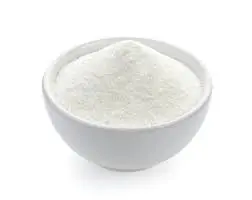
Fucoxanthin vs. CLA (Conjugated Linoleic Acid)
CLA is a fatty acid that has gained popularity as a weight loss supplement. Both CLA and fucoxanthin have shown potential for reducing body fat, particularly abdominal fat. However, the mechanisms of action differ. While CLA is thought to work by inhibiting fat storage and promoting fat breakdown, fucoxanthin's effects appear to be more focused on increasing energy expenditure through UCP1 induction. Some studies suggest that fucoxanthin may have a more significant impact on visceral fat reduction compared to CLA.
Fucoxanthin vs. Garcinia Cambogia
Garcinia cambogia, known for its active compound hydroxycitric acid (HCA), has been marketed as a weight loss aid that suppresses appetite and inhibits fat production. While some studies have shown modest effects for garcinia cambogia, the overall evidence for its efficacy is mixed. Fucoxanthin, although having fewer human studies, has shown more consistent results in animal research, particularly in its effects on metabolic rate and fat oxidation.
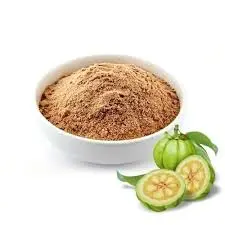
Conclusion
Fucoxanthin presents an intriguing option for those seeking natural weight loss support. Its unique mechanisms of action, particularly its ability to induce UCP1 expression in white adipose tissue, set it apart from many other weight loss supplements. While more human studies are needed to fully understand its potential, the existing research suggests that fucoxanthin may be a valuable tool in the fight against obesity and related metabolic disorders.
For those interested in exploring the potential benefits of fucoxanthin powder or other natural herbal extracts for weight management, Shaanxi Rebecca Biotechnology Co., Ltd. offers high-quality products derived from carefully sourced and processed raw materials. To learn more about our fucoxanthin powder and other natural solutions for health and wellness, please contact us at information@sxrebecca.com.
References
1. Maeda, H., Hosokawa, M., Sashima, T., Funayama, K., & Miyashita, K. (2005). Fucoxanthin from edible seaweed, Undaria pinnatifida, shows antiobesity effect through UCP1 expression in white adipose tissues. Biochemical and Biophysical Research Communications, 332(2), 392-397.
2. Abidov, M., Ramazanov, Z., Seifulla, R., & Grachev, S. (2010). The effects of Xanthigen™ in the weight management of obese premenopausal women with non-alcoholic fatty liver disease and normal liver fat. Diabetes, Obesity and Metabolism, 12(1), 72-81.
3. Gammone, M. A., & D'Orazio, N. (2015). Anti-obesity activity of the marine carotenoid fucoxanthin. Marine Drugs, 13(4), 2196-2214.
4. Miyashita, K., Nishikawa, S., Beppu, F., Tsukui, T., Abe, M., & Hosokawa, M. (2011). The allenic carotenoid fucoxanthin, a novel marine nutraceutical from brown seaweeds. Journal of the Science of Food and Agriculture, 91(7), 1166-1174.
5. Maeda, H., Hosokawa, M., Sashima, T., Murakami-Funayama, K., & Miyashita, K. (2009). Anti-obesity and anti-diabetic effects of fucoxanthin on diet-induced obesity conditions in a murine model. Molecular Medicine Reports, 2(6), 897-902.
_1730691017423.webp)










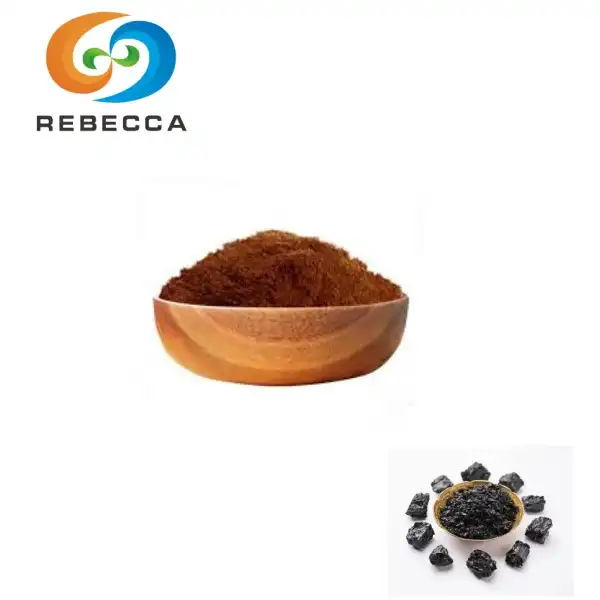
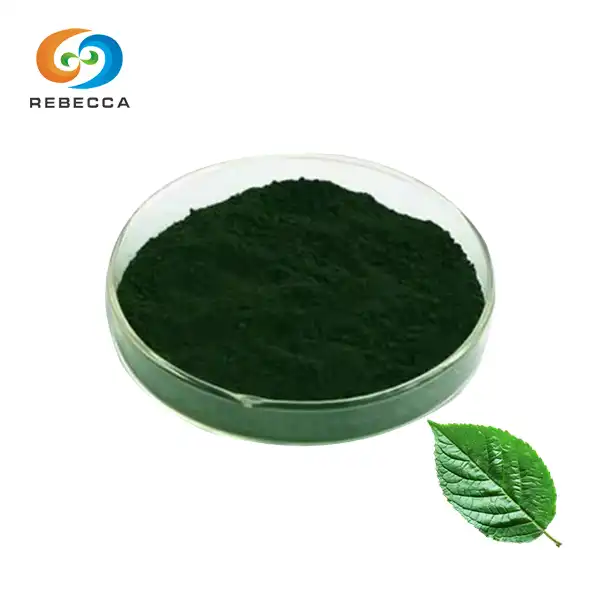
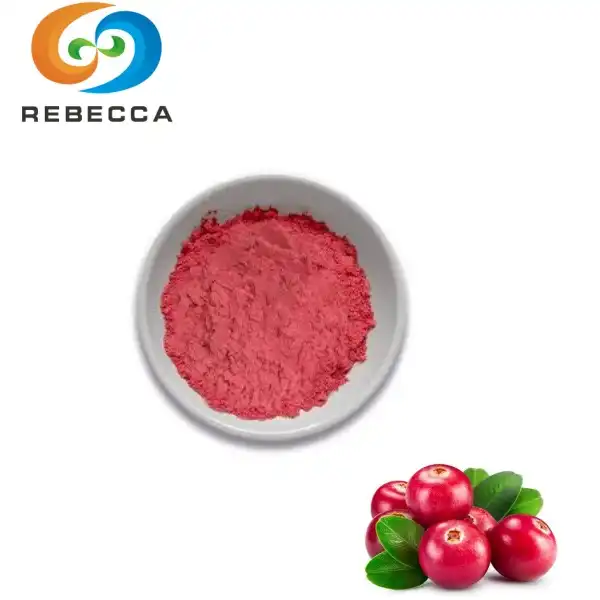
_1732783648166.webp)
